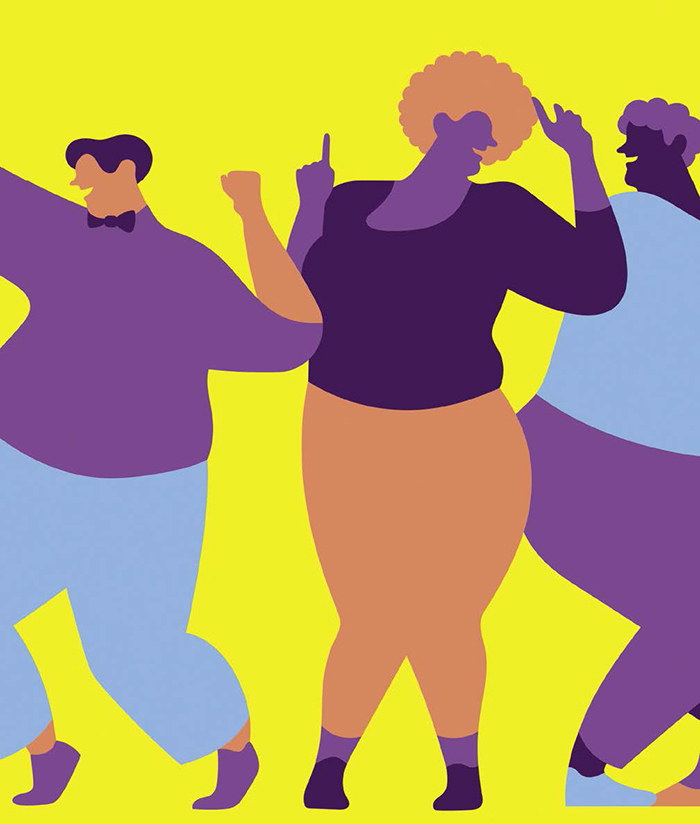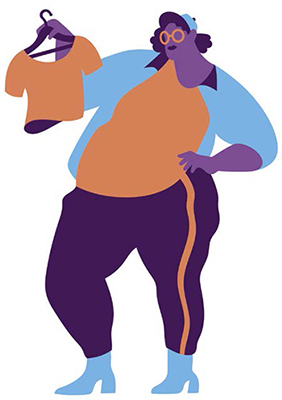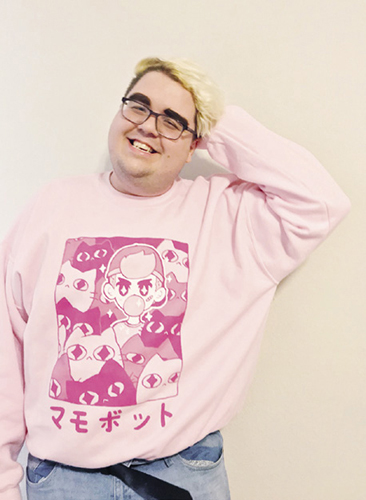
A Body Like Mine
Clothing is one of my favorite things to explore. I love experimenting with different looks, styles, patterns, colors. I probably spend far too much time and money in stores and online, looking at things, imagining how I could make them different and create new styles. Recently, I’ve gotten into altering my own clothing. Dyeing, bleaching, cutting, sewing. It’s fun seeing what I can make out of something else.
Even when I’m watching a movie or a television show, my eye is always drawn to what the characters are wearing. No matter if it’s a sweet romantic comedy or a sci-fi epic, I’m always interested in the clothing on the screen. I wonder why particular things were chosen and think about how a character’s personality or history can be portrayed simply by having good costumes.
Fashion is something I’ve been interested in for a long time, and as I’ve gotten older, my passion for it has helped broaden my horizons. It’s connected me to my nonbinary identity and helped me feel validated in my choices as I pick outfits from both the male and female sections of stores. I love combining masculine and feminine styles to create a look that I feel represents me.
This love interest of mine is strange, however, because the fashion industry doesn’t know what to do with people like me: people who are fat. Being a fat person who loves clothing is a loaded gun. I love fashion, and I love clothing. But just as often as my clothing empowers me, it can cause extreme discomfort. Sometimes I can’t fit into a certain cute, stylish outfit or a store just doesn’t carry anything I can wear.
I love clothes, but clothes do not love me back. They don’t love the size of my stomach or thighs. It’s difficult to describe the experience of being a fat person who loves to go shopping. Sometimes I visit stores early in the morning or late at night to avoid crowds and the judgment of others.
A lot of stores want to make the things that fit me harder to find. They proudly advertise that I can find larger sizes online . . . as though they don’t want me shopping there in person. Being nonbinary adds a surreal layer to things, because I don’t limit myself to what styles I wear—masculine or feminine. Shopping in a men’s section can, at times, be easy. But often as I move toward the women’s sections, plus sizes are tucked into a corner of the store. The message is clear: I’m meant to shop away from the eyes of everyone else.
This experience can be very othering. It doesn’t make me feel good knowing that the few people making clothing for fat bodies make them specifically for fat bodies, rather than for all different types of people. That instead of mainstream designers offering more sizes, plus-size customers are given a small corner of the store with limited options while surrounded by other things we can’t wear.

My own personal style can only be described as tacky. I love ugly things, especially when they are ugly on purpose. I like loud patterns, colors, hats, and ugly shoes. Still, it took years to cultivate my own style. Despite my being a trans and nonbinary person who loves mixing masculine and feminine fashion, my options were—and sometimes still are—painfully limited.
The beauty of clothing is that it is inherently a genderless form of expression—it has no limits! For trans people, traditionally masculine or feminine clothing can be reaffirming for their gender identity. For fat trans people, there’s an extra layer to contend with. It’s challenging to find shirts, for example, that aren’t revealing of a chest I don’t want most people to see. No matter what look I’m going for, I have to be creative in order to hit the style jackpot.
So, then comes the question:
Is there a fix?
I don’t have a definitive answer. But there has been movement toward change. Stores are offering more sizes, designers are dressing fat celebrities, fat designers are being given a forum, and as a culture, we’re coming to the realization that we shouldn’t have to change our physical selves for anyone. (And in the back of this book, you’ll find a list of fat fashion references that will, I hope, make things easier for you right now.) In an industry that has profited from designing for skinny bodies, the road to change is one long, complicated puzzle. To push things further, faster, one step we can take is to acknowledge the imbalance. And we can refuse to be ignored. Write letters to your favorite designers! Complain! Walk proudly in the outfits you love. Instagram the shit out of your smiling face when you feel beautiful. We’re making slow progress, but we’re getting there. And we can get there together—by supporting one another and continuing to speak out. We’re here to change the world; why not look amazing while we do it?

TRINH HÔNG HU’O’NG
MASON DEAVER
is a nonbinary author and bookseller who lives in Charlotte, North Carolina, where the word y’all is used in abundance. When they aren’t writing or working, they’re typically found in their kitchen baking something that’s bad for them or out in their garden complaining about the toad that likes to dig holes around their hydrangeas. You can find them online at masondeaverwrites.com and on Twitter @masondeaver.